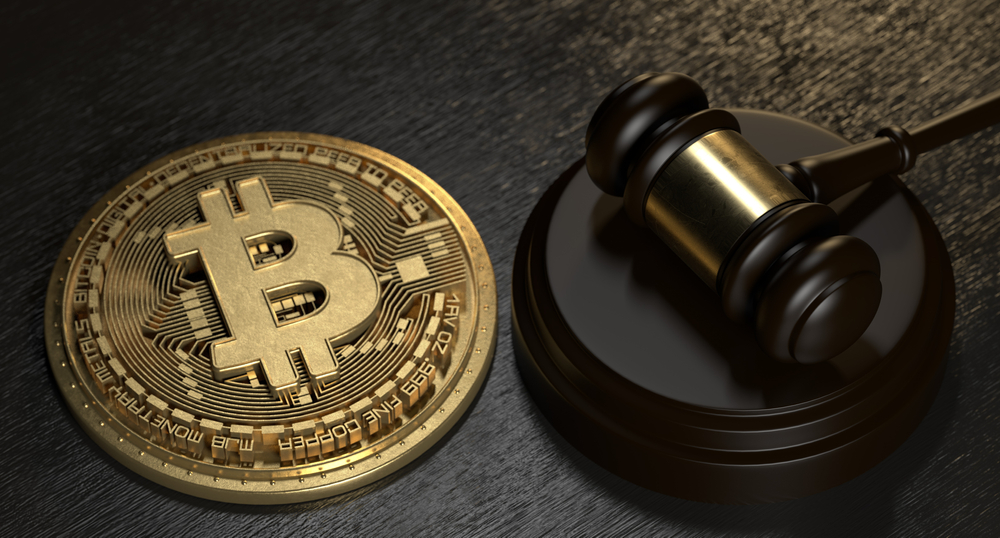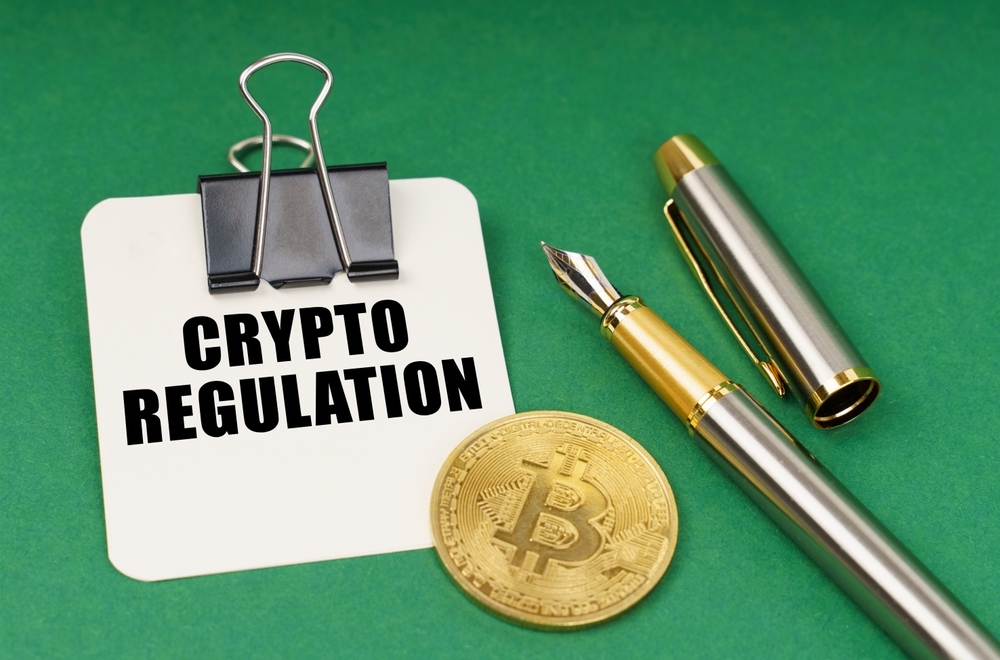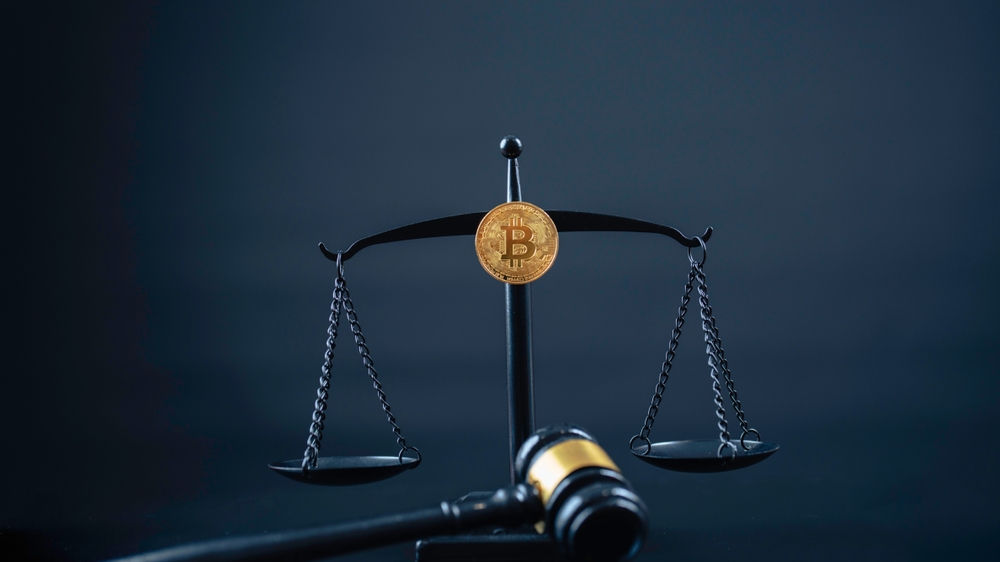Crypto Regulations to Follow

Navigating the ever-changing world of crypto regulations can feel like walking through a maze blindfolded. It’s frustrating trying to keep up with laws that shift overnight, and the fear of making a wrong move can be downright stressful. But it doesn’t have to be this way. Let’s cut through the confusion together so you can enjoy the perks of cryptocurrency without the constant worry.
The Confusion Surrounding Crypto Regulations

Let’s face it—crypto regulations can be confusing. With different countries implementing their own rules and the rapid pace at which laws change, it’s no wonder many of us feel lost.
Why This Matters to You
Not understanding the regulations can lead to serious consequences, like falling victim to scams, facing legal issues, or losing your hard-earned investments.
Your Guide to Stress-Free Compliance
In this article, I’ll break down the key crypto regulations you need to follow. Together, we’ll explore how to stay compliant while navigating the exciting world of cryptocurrency.
Curious about how to protect yourself and your investments in this ever-changing landscape? Let’s take a closer look at what you need to know.
Understanding Cryptocurrency Regulations

Cryptocurrency regulations might sound like a dry topic, but they’re crucial for anyone involved in the crypto world. These rules and guidelines govern how cryptocurrencies are used and traded, and understanding them can make a big difference in your crypto journey.
What Are the Regulations for Cryptocurrency?
You might be wondering what exactly these regulations entail. In a nutshell, they cover a range of areas designed to protect investors and maintain market integrity.
- Investor Protections: Regulations aim to shield investors from scams and market manipulation. For example, after numerous fraudulent initial coin offerings (ICOs) emerged, many countries tightened their rules on how new cryptocurrencies can be launched.
- Anti-Money Laundering (AML) Efforts: Governments require exchanges to implement AML policies to prevent illegal activities. This often means providing identification before you can trade, which helps keep the ecosystem clean.
- Tax Rules: Yes, taxes apply to crypto too. Knowing how your transactions are taxed can save you from unpleasant surprises when tax season rolls around.
A study by PwC found that a significant number of crypto investors are unaware of their tax obligations, leading to compliance issues down the road.
Protecting Yourself from Illicit Activities
Regulations aren’t just bureaucratic hurdles—they’re there to protect us from serious threats like money laundering and terrorism financing. By enforcing these rules, authorities aim to deter illicit activities that could harm the entire crypto community.
As the saying goes, “Trust takes years to build, seconds to break, and forever to repair.” These regulations help build and maintain trust in the crypto space, making it safer for everyone involved.
Ensuring You Have Accurate Information
In the fast-paced world of crypto, misinformation can spread like wildfire. Regulations help ensure that the information you receive is accurate and reliable. When companies are required to disclose certain details and adhere to transparency standards, it empowers you to make smarter investment decisions.
Remember when the SEC cracked down on fraudulent ICOs? It was a wake-up call that not everything is as it seems, and that due diligence is essential.
Having accurate information isn’t just helpful—it’s necessary to navigate the crypto markets effectively.
Starting to see how regulations play a vital role? Trust me, there’s more to uncover. Curious about how compliance policies impact your personal crypto activities? Let’s explore that next.
Compliance Policies in the Crypto World

When I first dipped my toes into the world of cryptocurrency, compliance was the last thing on my mind. I was captivated by the innovations and the promise of financial freedom. But as time went on, I realized that staying compliant isn’t just for big corporations—it’s essential for all of us navigating this space.
What Is Cryptocurrency Compliance?
So, what exactly does compliance mean in the context of cryptocurrency? Simply put, it’s about following the laws and regulations that govern how we use and trade digital assets. Think of it as the rulebook that keeps the crypto world fair and secure.
Compliance involves adhering to anti-money laundering (AML) laws, know-your-customer (KYC) requirements, and other regulations designed to prevent illegal activities. It might sound tedious, but it’s crucial for protecting both yourself and the broader community.
I remember a friend who ignored these regulations, thinking they didn’t apply to individual investors. Unfortunately, they ended up with a frozen account because they couldn’t verify the source of their funds. It’s a tough lesson, but it highlights why understanding compliance is so important.
“An ounce of prevention is worth a pound of cure.”
This old saying rings especially true in the crypto world. By being proactive about compliance, you’re safeguarding your investments from unforeseen troubles.
Meeting Compliance Requirements
You might be thinking, “This sounds complicated. How do I make sure I’m compliant?” The good news is, it’s more approachable than you might think. Here are some steps to help you meet compliance requirements:
- Choose Reputable Platforms: Use exchanges and wallets that enforce KYC and AML policies. These platforms take compliance seriously and help you stay on the right side of the law.
- Verify Your Identity: While it might feel intrusive, providing identification is a standard practice that helps prevent fraud and illicit activities.
- Keep Detailed Records: Document your transactions, including dates, amounts, and parties involved. This makes tax season less stressful and provides clarity if any issues arise.
- Stay Informed: Regulations can change rapidly. Subscribe to reliable news sources or join forums to keep up with the latest developments.
By taking these steps, you’re not just complying with regulations—you’re also building a solid foundation for your crypto activities.
Avoiding Legal Pitfalls
Nobody wants to inadvertently step into legal trouble, especially when we’re just trying to participate in a revolutionary technology. Understanding compliance helps you steer clear of common pitfalls that could have serious consequences.
Here are some areas where people often run into issues:
- Tax Obligations: In many countries, crypto transactions are taxable events. Failing to report gains (or losses) can lead to penalties. It’s worth consulting a tax professional who’s familiar with cryptocurrency.
- Anonymous Transactions: While privacy is a valued aspect of crypto, completely anonymous transactions can raise red flags with regulators. Be cautious about where and how you transact.
- Participating in Unregulated ICOs: Initial Coin Offerings (ICOs) can be exciting, but investing in unregulated ones can expose you to scams and legal issues.
By being mindful of these areas, you can protect yourself from unintentional violations that could derail your crypto journey.
Staying compliant might seem like walking a tightrope, but with the right knowledge and tools, it’s entirely manageable. Now that we’ve covered how to navigate compliance on a personal level, you might be curious about how governments are shaping the crypto landscape. Ever wondered what role they play and how it affects you? Let’s explore that next.
Government’s Role in Regulating Cryptocurrency

Ever wondered why governments are getting more involved in the crypto space? It’s not just about control—there’s a lot more at stake. Let’s break it down together.
Do Governments Regulate Cryptocurrency?
Absolutely, and it’s been ramping up since 2023. Governments worldwide have realized that cryptocurrencies aren’t just a passing trend—they’re here to stay. Legislators are now developing methods to monitor and track blockchain transactions more effectively.
For instance, the U.S. government has introduced new regulations requiring crypto exchanges to comply with stricter anti-money laundering (AML) and know-your-customer (KYC) policies. Similarly, the European Union has implemented the Markets in Crypto-Assets Regulation (MiCA) to create a unified regulatory framework across member states.
These changes aren’t limited to the Western world. Countries like South Korea and Japan have also tightened their crypto regulations to protect investors and maintain market integrity.
Why Governments Are Involved
You might be thinking, “Why all the fuss?” Well, governments have several reasons for stepping in:
- Investor Protection: With the rise of crypto scams and fraudulent ICOs, authorities aim to safeguard individuals from losing their hard-earned money.
- Preventing Illegal Activities: Cryptocurrencies have been used for money laundering, tax evasion, and funding illicit activities. Regulations help deter these practices.
- Financial Stability: Unregulated markets can lead to volatility that affects not just crypto holders but the broader economy.
As Benjamin Franklin once said,
“An investment in knowledge pays the best interest.”
Understanding these regulations is a form of investment in yourself.
How This Affects You
So, what does this mean for you? Staying informed about government regulations helps you:
- Stay Compliant: Avoid legal issues by knowing which laws apply to your crypto activities.
- Protect Your Investments: Awareness of regulations can help you make safer investment choices.
- Plan for the Future: Anticipate changes that could impact the crypto market and adjust your strategy accordingly.
It’s important to remember that the crypto landscape is constantly changing. Governments will continue to adapt their approaches, and so should we.
Curious about how to keep up with all these changes? There’s a way to stay ahead of the curve, and it might be simpler than you think.
Staying Informed: Who to Follow in Crypto

Keeping up with the fast-paced world of cryptocurrency can feel like a full-time job. But you don’t have to go it alone. I’ve found that following the right people can make all the difference in staying informed and making smart decisions.
Who to Follow Regarding Crypto?
Here are some of the influencers and experts who have been invaluable in my own crypto journey:
- @oliverzok: Oliver Zok provides insightful analysis on market trends and regulatory developments. His keen observations have helped many navigate the complex crypto landscape.
- @Web3Spike: Spike is all about the future of Web3 and decentralized technologies. If you want to glimpse what’s coming next, he’s your go-to source.
- @mvpescu: Known for breaking down technical concepts into digestible bits, MV Pescu makes it easier to understand the intricacies of blockchain technology.
- @Cryptoholic_boy: With a passion for sharing crypto news and tips, Cryptoholic Boy keeps things engaging and accessible, perfect for both newcomers and seasoned investors.
Building Your Knowledge Network
Connecting with these thought leaders isn’t just about staying informed; it’s about joining a community of like-minded enthusiasts. When I first started, I felt overwhelmed by the sheer volume of information out there. But following and engaging with these experts made me feel part of something bigger.
“The smartest people in the room are those who surround themselves with people smarter than they are.”
By building your own knowledge network, you’re not just collecting information—you’re fostering relationships that can provide support, insights, and perhaps even friendship along the way.
Trusted Sources for Reliable Information
While following influencers is a great start, it’s also crucial to access reliable platforms for the latest news and in-depth analysis. In a space that’s constantly evolving, having trusted sources at your fingertips can make a real difference.
Here are some platforms I’ve found invaluable:
- CoinTelegraph: Offers up-to-date news on all things crypto.
- CoinDesk: Provides in-depth articles and analyses.
- CryptoLinks: A curated directory of the best crypto resources (yes, shameless plug, but I genuinely believe in it!).
Staying informed is an ongoing process, and with these resources, you’ll be well-equipped to navigate the ever-changing crypto landscape.
But knowledge alone isn’t enough—knowing where to find it is just the first step. Ever wondered how to dig even deeper and uncover insights that most people miss? In the next section, I’ll share some additional resources that can take your crypto understanding to the next level.

If you’re like me, you know that staying informed is half the battle in the crypto world. Regulations can change overnight, and keeping up can feel like a full-time job. That’s why I want to share some resources that have been game-changers for me.
Recommended Reading on Crypto Regulations
These articles have provided me with valuable insights and helped me stay ahead of the curve:
- Investopedia: Cryptocurrency Regulations Around the World – This comprehensive guide breaks down how different countries are handling crypto. It’s a must-read to understand the global landscape.
- World Economic Forum: How Global Cryptocurrency Regulations Are Changing – An insightful piece that highlights recent shifts in regulations and what they mean for investors like us.
- Britannica: Cryptocurrency Regulation – A detailed look at the legal aspects of crypto. It dives deep into the implications of different regulatory approaches.
I’ve found these resources incredibly helpful for getting a clearer picture of the regulatory environment. They’re packed with information that’s both accessible and thorough.
Staying Up-to-Date with Credible Sources
In a space that’s evolving so rapidly, it’s crucial to know where to turn for reliable information. Here are a few tips that have helped me:
Check the Source: Always consider who’s providing the information. Trusted platforms like Investopedia and Britannica have reputations for accuracy and depth.
Look for Official Announcements: Regulatory bodies often post updates on their official websites or social media channels. Keeping tabs on these can give you direct insights straight from the source.
Join the Conversation: Engaging with the crypto community on platforms like Twitter and Reddit can surface valuable perspectives. Just remember to verify any critical information through reputable channels before acting on it.
Staying informed isn’t just about reading the right articles; it’s about cultivating a network of reliable information streams. This approach has saved me from potential pitfalls more than once.
Feeling overwhelmed by all the information out there? Don’t worry, you’re not alone. Up next, I’ll share some strategies that have helped me cut through the noise and stay focused on what really matters.
Taking the Next Steps in Your Crypto Journey

Implementing What You’ve Learned
Now that we’ve explored the world of crypto regulations together, it’s time to put that knowledge into action. Here are some practical steps you can take to make sure you’re always on the right side of the law:
- Stay Informed About Local Laws: Crypto regulations can vary widely depending on where you live. Make it a habit to check your government’s official websites or financial authorities for updates. For example, if you’re in the U.S., the SEC and FINRA offer valuable resources.
- Use Reputable Exchanges: Stick to well-known cryptocurrency exchanges that comply with regulations. Platforms like Coinbase and Kraken have strict compliance measures in place, which helps protect you from potential fraud.
- Keep Detailed Records: Document all your crypto transactions. This not only helps during tax season but also ensures you have proof of your activities if any legal questions arise.
- Secure Your Assets: Implement strong security practices like using hardware wallets, enabling two-factor authentication, and regularly updating your passwords. Protecting your investments is just as important as making them.
- Consult Professionals: If you’re unsure about specific regulations or tax obligations, don’t hesitate to reach out to legal or financial experts who specialize in cryptocurrency.
By taking these steps, you’re not just complying with regulations—you’re actively safeguarding your crypto journey.
The Importance of Ongoing Awareness
The crypto landscape is constantly evolving, and staying updated is crucial. Just consider how in 2023, countries like South Korea tightened their crypto regulations, impacting traders and investors who weren’t prepared. To avoid surprises like this:
- Set Up News Alerts: Use tools like Google Alerts for terms like “crypto regulations” or “cryptocurrency laws” to get real-time updates.
- Follow Reputable Sources: Keep an eye on trusted news outlets and official statements from regulatory bodies. Websites like Cointelegraph and CoinDesk regularly report on regulatory changes.
- Engage with the Community: Join forums and social media groups where enthusiasts share news and insights. I’ve found that communities on platforms like Reddit and Twitter can be invaluable resources.
By making ongoing awareness a part of your routine, you’ll be better positioned to adapt to any regulatory changes that come your way.
Final Thoughts: Empowering Your Crypto Experience
Navigating crypto regulations doesn’t have to be a stressful endeavor. Think of it as equipping yourself with the tools and knowledge to make confident decisions. When you’re informed, you’re not just avoiding potential pitfalls—you’re empowering yourself to fully enjoy what the crypto world has to offer.
Remember, the crypto community thrives on innovation and collaboration. By staying compliant and informed, you’re contributing to a healthier ecosystem for everyone. So go ahead, embrace the excitement of cryptocurrency, and know that you’re doing so with confidence and peace of mind.
Here’s to your successful and secure crypto journey!
